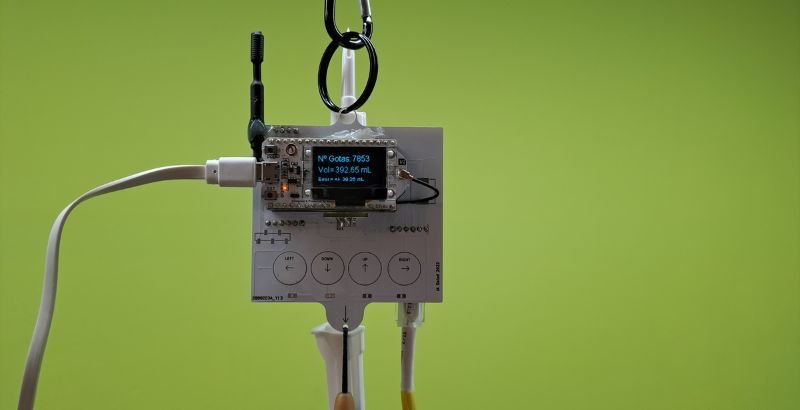The revolutionary device detects urine in a catheterised patient through an infrared barrier that measures the volume in real time, stores the history with an accurate date and generates alarms in case of risk.

A new step forward in the incorporation of Artificial Intelligence (AI) in the field of health. The Spanish Patent and Trademark Office (SPTO) has granted the ‘utility model’ to the intelligent urinometer developed by the IASalud group of Universidad Europea. The trandisciplinary project that facilitates the work of nursing professionals and aids medical decision-making has involved students and teachers from the Universidad Europea, as well as doctors from the HLA Moncloa University Hospital.
‘The automatic measurement of the urine of catheterised patients and its widespread use in hospital clinical settings through data collection marks the way to incorporate the IoMT (Internet of Medical Things) in this area of health,’ explains Juan José Beunza, director of IASalud at Universidad Europea. The revolutionary device, which could cost as little as 50 euros to produce, not only detects the urine flow of catheterised patients, but also, thanks to an infrared barrier, measures the volume of urine in real time, stores the history with a precise date, generates alarms in case of risk and analyses the colourimetric changes of the urine. In this way, as Dr Beunza points out, ‘the data can feed machine learning models that allow the development of intelligent systems to support clinical decision-making’.
Currently, urine flow is measured in the Intensive Care Unit (ICU) manually with graduated containers that nurses use to calculate the liquid every hour. In an ICU with 15 beds, about 12 hours a day are dedicated to this task (estimating 2 minutes per hourly measurement), in which errors can occur that delay the detection of renal failure or other pathologies. The intelligent device designed in the subject ‘Sensors’, led by José Luis Lafuente Carrasco in the Biomedical Engineering degree, measures and analyses diuresis, sending the results to the ICU and the patient.
With the approval of the ‘utility model’ by the SPTO and the support of the scientific community, the AI-integrated urinometer is emerging as a key tool in the modernisation of intensive care. Its implementation not only promises to improve the accuracy of patient monitoring, but also opens the door to future innovations in healthcare by integrating artificial intelligence and IoMT into clinical decision-making.